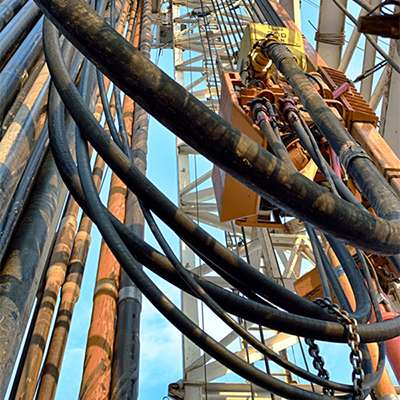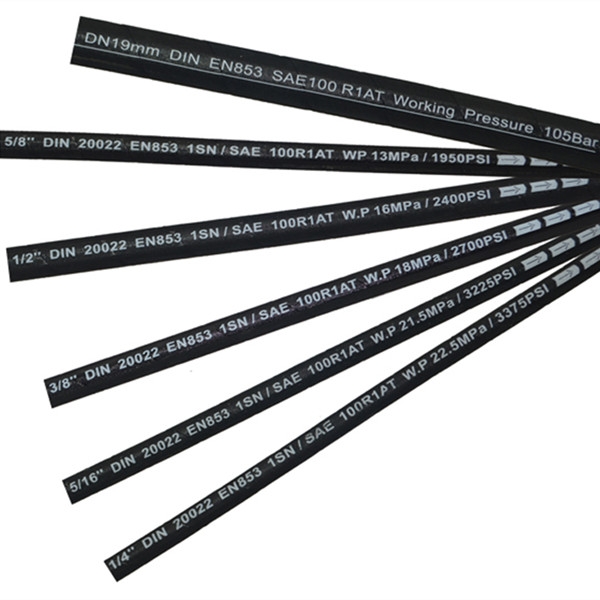
Hebei Jingbo Petroleum Machinery Co.,Ltd
Email: [email protected]
Phone:008631189849942
Skype:drilling.hose66
Address:Chengxi Industrial Zone, Jing County, Hebei Province, China
Oil companies use offsets to claim green barrels.
In January, Occidental Petroleum announced it had accomplished something no oil company had done before: It sold a shipload of crude that it said was 100% carbon-neutral.
While the two-million-barrel cargo to India was destined to produce more than a million tons of planet-warming carbon over its lifecycle, from well to tailpipe, the Texas-based driller said it had completely offset that impact by purchasing carbon credits under a U.N.-sponsored program called CORSIA.
Carbon credits are financial instruments generated by projects that reduce or avert greenhouse-gas emissions such as mass tree plantings or solar power farms. The projects’ owners can sell the credits to polluting companies, who then use them to make claims of offsetting their carbon emissions.
Details of the Occidental transaction have not been previously reported. Two sources involved in the deal told Reuters that the driller paid about $1.3 million for the credits – or about 65 cents per barrel. Oil currently sells for more than $60 a barrel.
Occidental and the U.N. program say such credits make the two-million-barrel cargo carbon-neutral because they represent an equivalent amount of greenhouse gas removed from the atmosphere by the projects generating the credits.
The arrangement reflects a growing trend. Oil-and-gas companies worldwide are increasingly trying to market their products as cleaner using a range of controversial methods, including buying credits, powering drilling operations with renewable power and investing in expensive and commercially unproven technology to capture and store emissions.
The moves are designed to secure a future for the fossil fuel industry in a world where investors, activists and regulators demand action to stop climate change. In some cases they are also designed for profit: Companies have begun seeking a premium price for what they call cleaner petroleum products.
Although carbon credits do nothing to reduce the pollution from a given barrel of oil, proponents of offset programs argue that credit purchases help finance clean-energy efforts that otherwise would not be profitable.
Critics blast such programs as smoke-and-mirrors public relations efforts that allow polluters to scrub their image while they continue to profit from climate damage.
Oil company claims of clean fuels through offseting are like "a tobacco company saying they sell nicotine-free cigarettes because they paid someone else to sell some chewing gum," said David Turnbull, a spokesman for Washington-based Oil Change International, an advocacy group opposing fossil fuels.
NO CLEAR STANDARDS
Carbon credit programs range from national efforts to global ones like the Carbon Offsetting and Reduction Scheme for International Aviation run by the United Nations.
Companies and nonprofit organizations such as VERRA and SustainCERT are charged with issuing and verifying credits under these programs. They certify that the projects generating credits are leading to the promised amount of reduced emissions and would not have been built without the credit income.
But there are no uniform standards for how to calculate the full climate impact of fossil fuels, or how to properly offset it with environmental projects, industry experts say. Companies buying credits are also not obliged to disclose their cost or origin - a problem because they can vary widely in price and quality.
In Occidental’s case, the credits were generated between 2016 and 2019 by solar, wind and other clean-energy projects in emerging economies such as India, Thailand and Turkey, and were verified by VERRA.
“The credits they issued are valid and have environmental integrity,” said VERRA spokeswoman Anne Thiel.
VERRA and other verifiers, however, have since stopped approving renewable energy projects in those nations to generate offsets after concluding last year that they had become competitive enough to be built even without offset credit revenue.
Occidental defended the deal, saying it could kick off a new market for oil offset with credits that directs money to green-energy projects. "We can be a big part of the global solution," said Richard Jackson, Occidental's president of operations for onshore resources and carbon management.
We are API authorized manufacturer for the drilling mud hoses, choke and kill hoses and BOP hoses with certificates of API Spec 7K, API Spec 16C and API Spec 16D.







